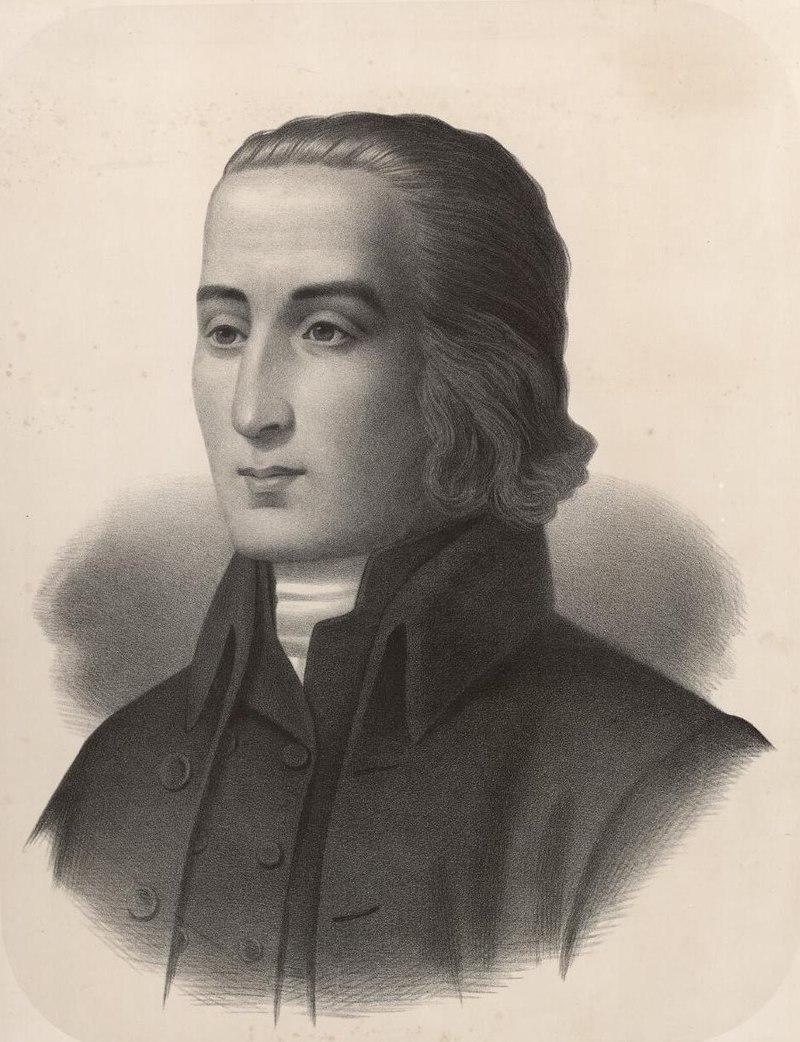|
"Arglwydd, arwain trwy'r anialwch,” wrote the Welsh premier hymnist William Williams (also known as Pantycelyn), which would eventually be known as Guide Me, O Thou Great Jehovah. Recorded as one of the greatest literary figures of Wales, Williams was among the leaders of the Welsh Methodist revival in the 18th-century.
William Williams was born on 11th February 1717 in the Welsh parish of Llanfair-ar-y-bryn to John and Dorothy Williams. The nickname Pantycelyn, which means “Holly Hollow”, comes from the name of the farmhouse where Williams died aged 73. Not much is known about Williams’ childhood other than he was brought up in a nonconformist household and attended a nonconformist college. He originally intended to study medicine but changed his mind after listening to the evangelical Methodist revivalist Howell Harris. Following this, he felt called to the priesthood and abandoned his nonconformist upbringing to take orders in the Establish Anglican Church. Williams’ first position was as curate to Theophilus Evans in the mid-Wales parish of Llanwrtyd. Whilst he was there, he became involved with the Methodist movement, which upset his parishioners who reported him to the Archdeacon. At the time, Methodism was not a church denomination but rather a faction, which many saw as a threat to the Anglican Church. Due to the complaints, Williams’ application to be ordained as a priest was refused. Since he could not be an Anglican priest, Williams opted to be a Methodist preacher instead. Williams began to travel throughout Wales to preach the doctrine of Calvinistic Methodism. Since his pay was poor, he supplemented his income by selling tea. As there were no Methodist churches, Williams preached his sermons in seiadau (fellowship meetings), which he had to personally organise as he went from place to place. Although there were several Methodist revivalists, Williams mostly worked alone, which was a considerable physical and mental burden, however, it was rewarding to see his community of converted Methodists grow. As well as being a leader of the Methodist Revival, Williams was a celebrated hymn writer. He became known as "Y pêr ganiedydd" (The Sweet Songster), which echoes the description of King David in 2 Samuel 23:1: “the sweet psalmist of Israel”. The majority of his hymns were written in Welsh apart from O’er the Gloomy Hills of Darkness, Hosannah to the Son of David and Gloria in Excelsis. Williams’ most famous, however, is the English translation of “Lord, lead thou through the wilderness”, which has been adapted into Guide Me, O Thou Great Jehovah/Redeemer. Cwm Rhondda, as it is sometimes known in Welsh, is based on Isaiah 58:11: “The Lord will guide you always; he will satisfy your needs in a sun-scorched land and will strengthen your frame. You will be like a well-watered garden, like a spring whose waters never fail.” The hymn, which was translated into English by Peter Williams (1722-96), describes the journey through the wilderness of God’s people after they escaped from slavery in Egypt. They were guided by a cloud by day and fire by night, eventually arriving in the land of Canaan after forty long years. God kept his people alive during the journey by supplying them with a daily portion of manna. Some people interpret Guide Me, O Thou Great Jehovah, as a Christian’s journey through life. By following Christ’s guidance, the Christian eventually reaches the gates of Heaven. The lyrics “verge of Jordan” can be understood as the gates and “death of death and hell’s destruction” as the end of time. As a result, the hymn is often sung at funerals, for instance, the funerals of Princess Diana and the Queen Mother. On the other hand, it was also sung at the royal weddings of Prince William and Catherine Middleton and Prince Harry and Meghan Markle. Non-Christian people may be familiar with the hymn from attending rugby union matches. Known as the “Welsh Rugby Hymn”, it is often sung by supporters of the Welsh team. Alternatively, the tune may be familiar to football fans, although, as of 2016, the lyrics have been changed to “You’re Not Singing Any More” and sung at the losing opposition!
0 Comments
Your comment will be posted after it is approved.
Leave a Reply. |
©Copyright
We are happy for you to use any material found here, however, please acknowledge the source: www.gantshillurc.co.uk AuthorRev'd Martin Wheadon Archives
June 2024
Categories
All
|

 RSS Feed
RSS Feed